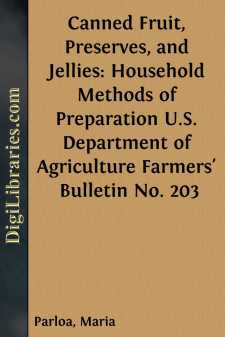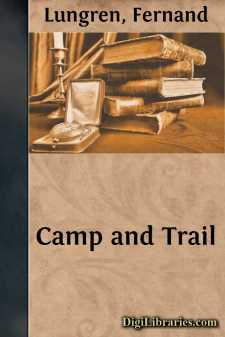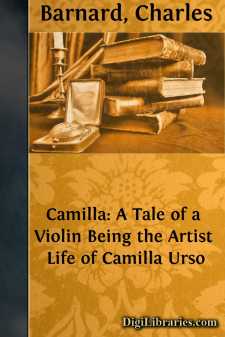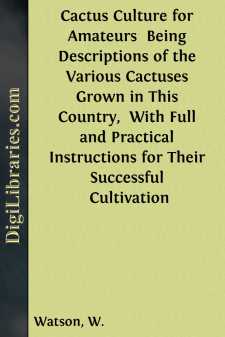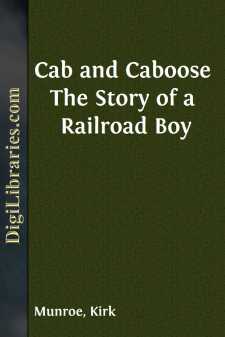Non-Classifiable
- Non-Classifiable 1768
Non-Classifiable Books
Sort by:
by:
Maria Parloa
INTRODUCTION. The common fruits, because of their low nutritive value, are not, as a rule, estimated at their real worth as food. Fruit has great dietetic value and should be used generously and wisely, both fresh and cooked. Fruits supply a variety of flavors, sugar, acids, and a necessary waste or bulky material for aiding in intestinal movement. They are generally rich in potash and soda salts and...
more...
The earliest records of the administration of the post office in Canada bear date 1750, at which period the celebrated Benjamin Franklin was Deputy Postmaster General of North America. At the time of his appointment the revenue of the department was insufficient to defray his salary of £300 per annum; but under his judicious management not only was the postal accommodation in the Provinces...
more...
f all the various subjects in the catalogue of sports and pastimes, there is none more sure of arousing the enthusiasm of our American boys generally, than that which forms the title of this book. Traps and Trapping, together with its kindred branches, always have been and always will be subjects of great interest among boys, and particularly so to those who live in the country. It is a fact to be...
more...
by:
Fernand Lungren
CHAPTER I THE WILDERNESS TRAVELERThe First QualificationMANY people have asked me what, all things considered, is the most valuable quality a wilderness traveler can possess. Always I have replied unhesitatingly; for no matter how useful or desirable such attributes as patience, courage, strength, endurance, good nature, and ingenuity, may prove to be, undoubtedly a man with them but without the sense...
more...
by:
Charles Barnard
CHAPTER I.BEFORE DAWN. About thirty miles from the sea, on the River Loire, in France, stands the quaint, sleepy old town of Nantes. The Erdre and the Sevre, two smaller streams unite with the Loire just here and the town is spread out in an irregular fashion over the islands, the little capes between the rivers, and the hills that stand round about. The old part of the town is on the hill-side and...
more...
by:
W. Watson
INTRODUCTION. HE Cactus family is not popular among English horticulturists in these days, scarcely half a dozen species out of about a thousand known being considered good enough to be included among favourite garden plants. Probably five hundred kinds have been, or are, in cultivation in the gardens of the few specialists who take an interest in Cactuses; but these are practically unknown in English...
more...
by:
Kirk Munroe
“Go it, Rod! You’ve got to go! One more spurt and you’ll have him! There you are over the line! On time! On railroad time! Three cheers for Railroad Blake, fellows! ’Rah, ’rah, ’rah, and a tigah! Good for you, Rod Blake! the cup is yours. It was the prettiest race ever seen on the Euston track, and ‘Cider’ got so badly left that he cut off and went to the dressing-room without...
more...
by:
William Andrews
Hanging. he usual mode of capital punishment in England for many centuries has been, and still is, hanging. Other means of execution have been exercised, but none have been so general as death at the hands of the hangman. In the Middle Ages every town, abbey, and nearly all the more important manorial lords had the right of hanging, and the gallows was to be seen almost everywhere. Representatives of...
more...
I. SOME CHARACTERISTICS OF MEDAEVAL THOUGHT IN the earliest days of his upward evolution man was satisfied with a very crude explanation of natural phenomena—that to which the name "animism" has been given. In this stage of mental development all the various forces of Nature are personified: the rushing torrent, the devastating fire, the wind rustling the forest leaves—in the mind of the...
more...
by:
Alexander Whyte
CHAPTER I—THE BOOK ‘—the book of the wars of the Lord.’—Moses. John Bunyan’s Holy War was first published in 1682, six years before its illustrious author’s death. Bunyan wrote this great book when he was still in all the fulness of his intellectual power and in all the ripeness of his spiritual experience. The Holy War is not the Pilgrim’s Progress—there is only one Pilgrim’s...
more...


